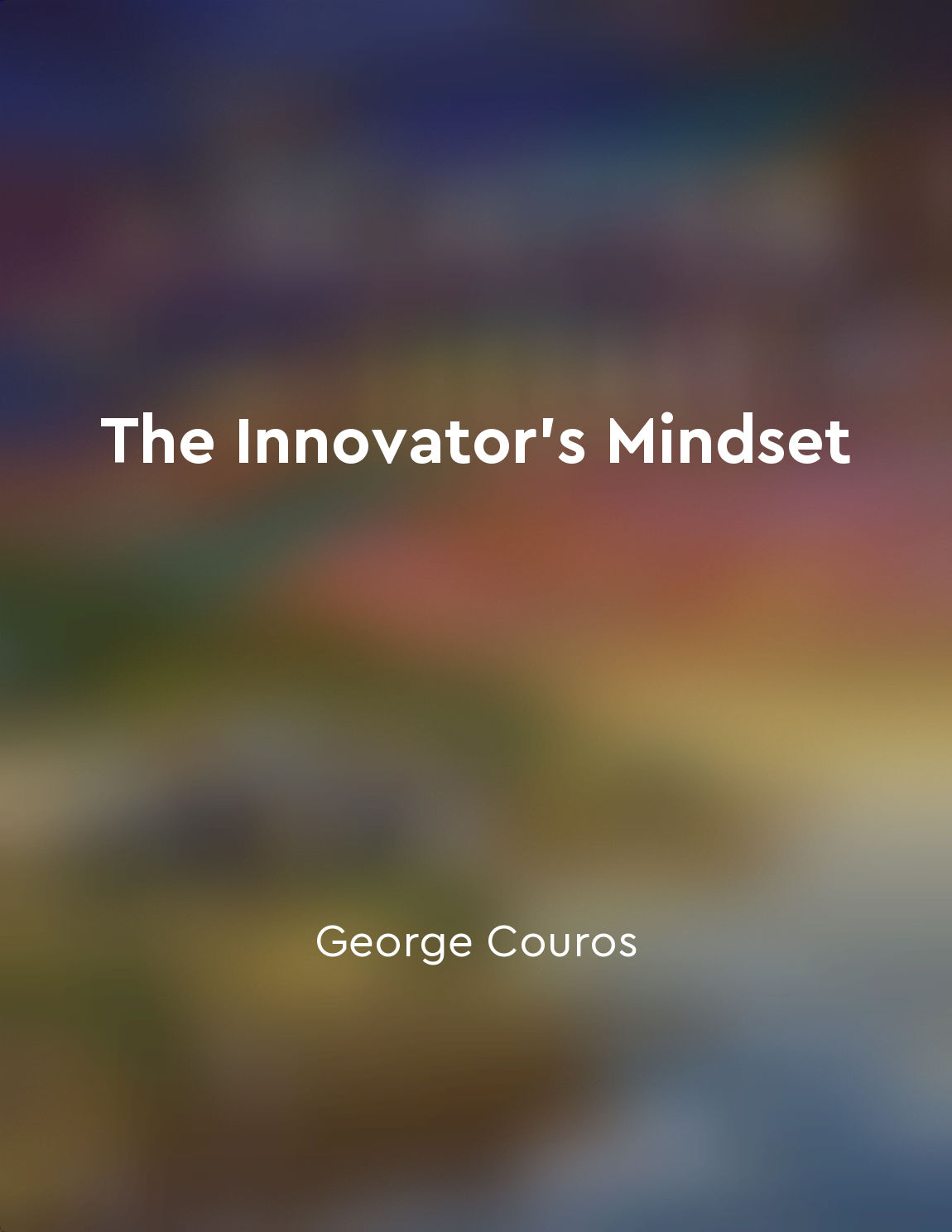Visionary and Integrator roles are complementary, not competitive from "summary" of Rocket Fuel by Gino Wickman,Mark C. Winters
The Visionary role and the Integrator role are two critical components of a successful business partnership. While they may seem distinct, even opposite, they are actually meant to work hand in hand. The Visionary is the dreamer, the big thinker who sees the future and sets the direction for the company. The Integrator, on the other hand, is the one who takes those dreams and turns them into reality, ensuring that the day-to-day operations run smoothly and efficiently. It's easy to see these roles as conflicting - after all, the Visionary is all about creativity and innovation, while the Integrator is focused on structure and organization. However, when they are able to work together effectively, they can create a powerful synergy that drives the business forward. The key to making this partnership work is understanding that the Visionary and the Integrator have complementary skills and strengths. Each brings something unique to the table that the other lacks. By recognizing and appreciating these differences, they can learn to leverage them to their advantage. The Visionary may come up with groundbreaking ideas, but without the Integrator to implement them, those ideas will never come to fruition. Likewise, the Integrator may keep the business running smoothly, but without the Visionary to provide direction and inspiration, the company may stagnate. When the Visionary and Integrator roles are in sync, they can achieve great things together. The Visionary sets the vision and the Integrator makes it a reality. They support and challenge each other, pushing the business to new heights.- The success of the business depends on the ability of the Visionary and Integrator to work together effectively. By recognizing the value that each brings to the table and finding ways to collaborate, they can create a powerful partnership that drives the company forward.
Similar Posts
Leaders must be able to learn from failures and continuously improve
Leaders who are able to learn from failures and continuously improve possess a vital skill that sets them apart. When faced wit...
Purpose is not static and must evolve
Purpose is not fixed in stone; it is a living, breathing entity that must adapt and grow over time. In today's fast-paced and e...
Longterm thinking leads to sustainable growth and stability
Visionary companies prioritize principles and values that transcend immediate financial gain. They cultivate a mindset that val...

Childhood dreams shape our future success
When we were young, we all had dreams that seemed too big and impossible to achieve. However, those childhood dreams have a way...

Build relationships to foster creativity
One of the key components of fostering creativity is building strong relationships with those around you. These relationships a...
Sharing your goals with others can boost your chances of success
When we strive towards a goal, we often believe that we must keep it to ourselves in order to maintain focus and motivation. Ho...
Technology plays a crucial role in business model evolution
In today’s rapidly changing business environment, technology has become a key driver of business model evolution. Companies are...
Diversifying your investments can mitigate risk
When it comes to investing, putting all your eggs in one basket is not a wise move. By spreading your investments across differ...
Empowering others through coaching and mentoring enhances team performance
Empowering others through coaching and mentoring is a powerful strategy for enhancing team performance. When team members are s...

Embracing empathy as a key leadership trait
Embracing empathy as a key leadership trait is crucial for leaders who want to build strong, engaged, and high-performing teams...

